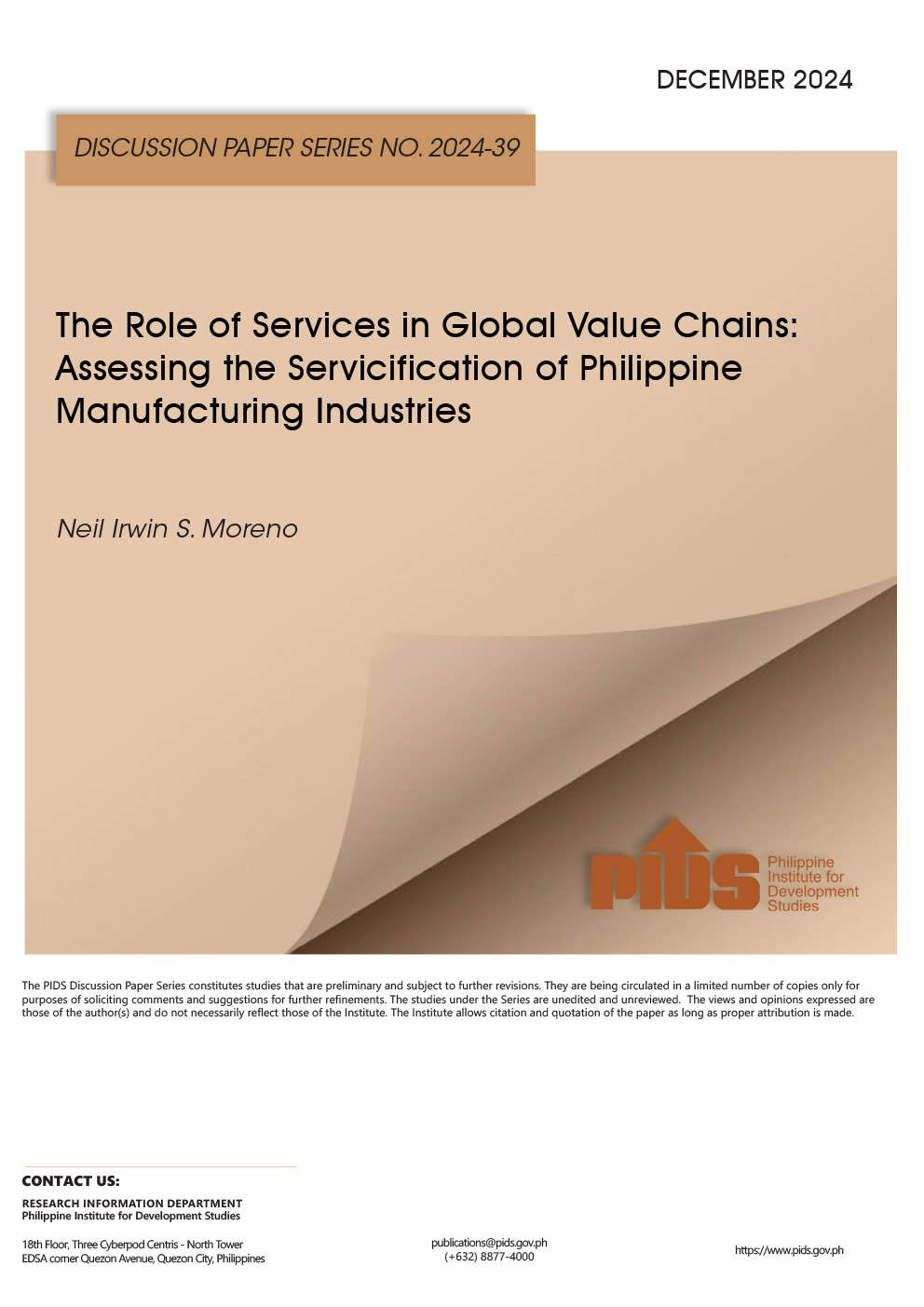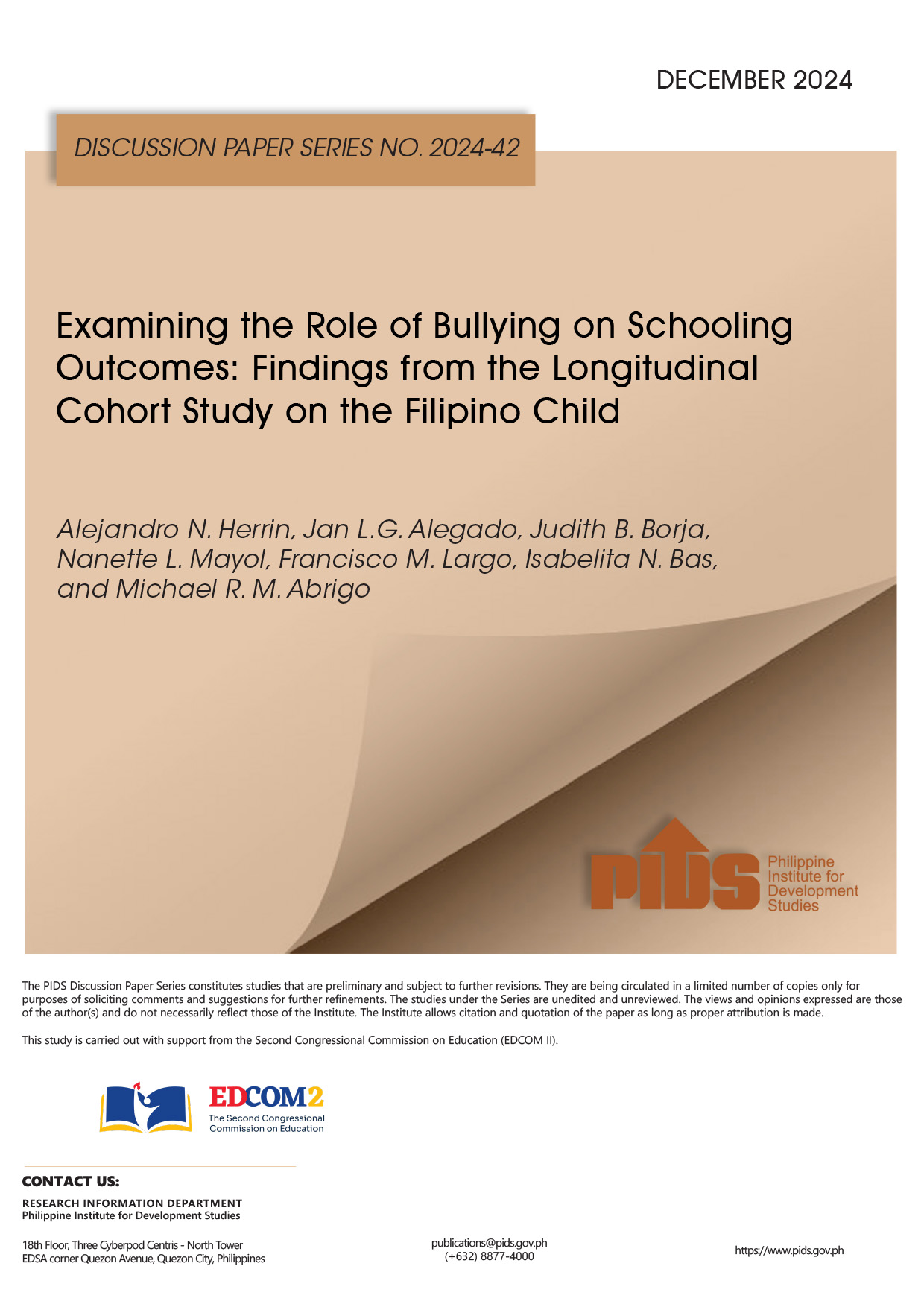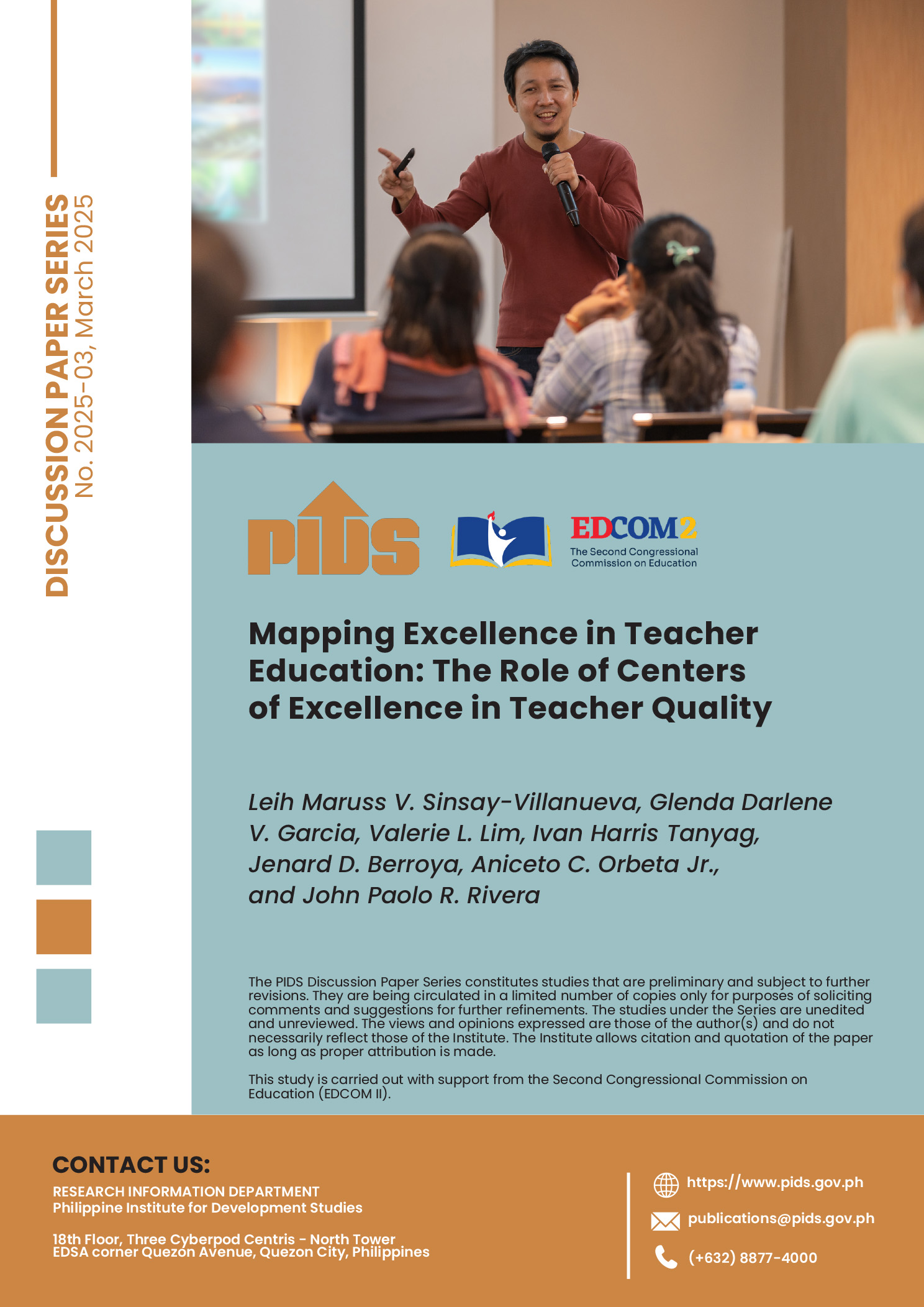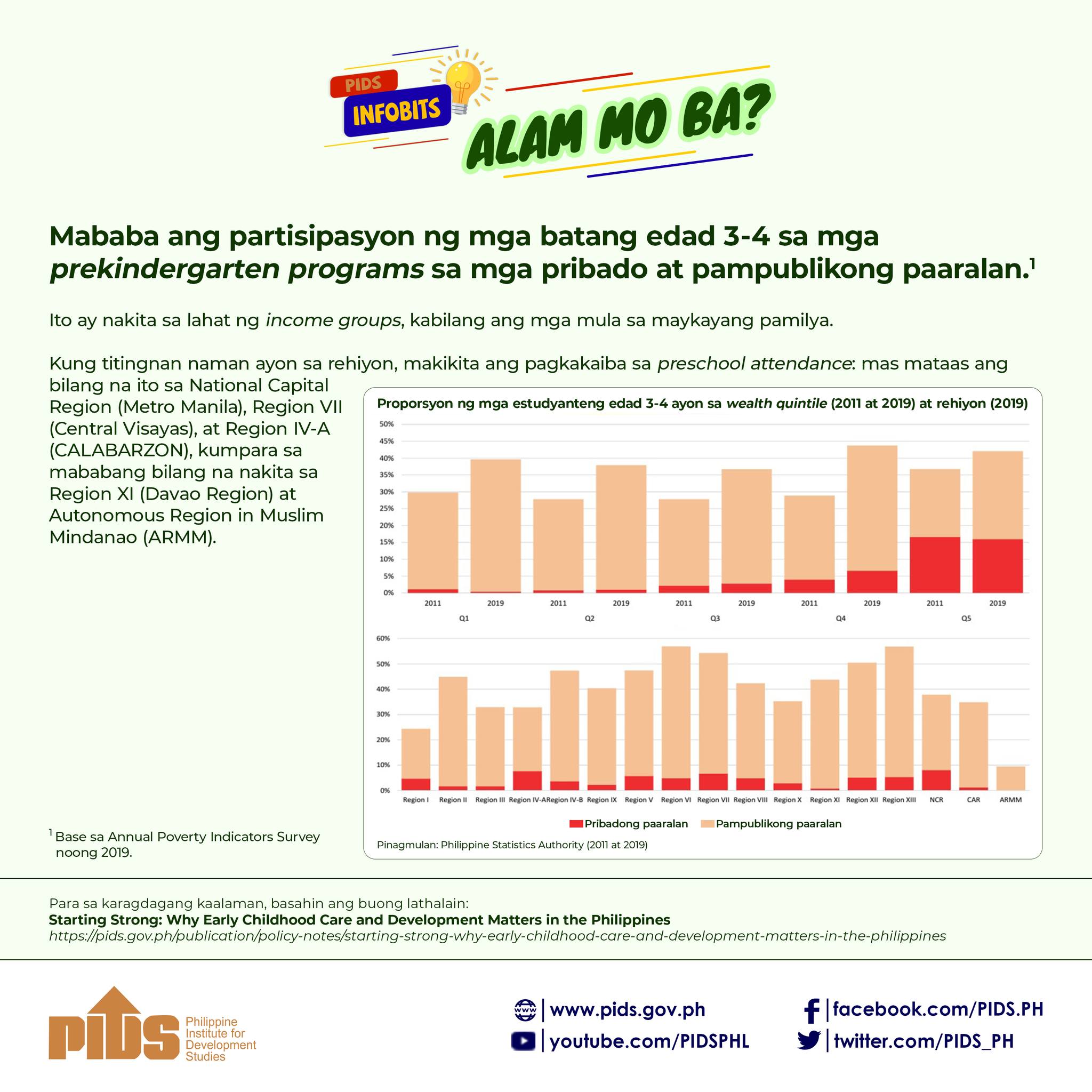Philippine Institute for Development Studies (PIDS) said Sunday the graduate education system plays a crucial role in mapping growth goals.
Mira Alexis Ofreneo, author of the study and PIDS research consultant, says it is important that masteral and doctoral programs are needed to manage, schools, corporations, and government organizations.
"There are 2,299 higher education institutions (HEIs) in the Philippines, 656 of which are state universities and colleges (SUCs) while 1,643 are private HEIs,” Ofreneo said.
"A total of 647 HEIs (28 percent) offer master’s programs and 313 (14 percent) offer doctoral programs.”
Ofreneo said master programs are led by "Education (27 percent), Nursing (14 percent), and Business Administration (11 percent)”.
The most widely offered doctoral programs are Educational Management (45 percent), Education (25 percent), and Public Administration (19 percent), Ofreneo said.
"The other programs that landed in the top 10 are Business Administration, Philosophy, Management, Development Education, Science Education, Educational Administration, and Business Management.”
During the National Workshop on Services last May organized by PIDS and the Department of Foreign Affairs, Dr. Tereso Tullao of the Angelo King Institute for Economic and Business Studies, De La Salle University, cited the need to raise the competitiveness of Philippine higher education.
The country ranked 67th in higher education and training and 81st in tertiary enrolment in the 2013-2014 Global Competitiveness Report.
The Report assessed 148 companies to gain insight into the drivers of productivity and prosperity.
"Only 21.5 percent of the more than 2,200 HEIs in the country have some form of accreditation,” Tullao said.
"Only 12.7 percent of 130,000 faculty members have doctoral degrees,” he added.
In terms of the number of Scopus-listed articles for each ASEAN University Network (AUN) member-university, three universities in the Philippines are identified. The University of the Philippines - Diliman has produced 2,108, De La Salle University has 1,028, and Ateneo de Manila University has produced 440, Tullao said.
Scopus is the largest abstract and citation database for academic journal articles. It covers nearly 21,000 titles from over 5,000 publishers.
The National University of Singapore has produced 74,560 documents and has the highest cumulative number of Scopus-listed documents in the ASEAN region, Tullao said.
Leaders of the services sector agree that the graduate education programs in the country should advance Philippine services sectors in the Asia-Pacific region given that the country has vast potentials to be the heart of services trade in the Asia Pacific.
The country can tap its vast human resource opportunities in the maritime, outsourcing, franchising, medical, and educational services, said PIDS research consultant Dr. Ramonette Serafica during the workshop.
This was supported by Ana Maria Bongato, executive director for talent development at the IT Business Process Association of the Philippines (IBPAP). According to Bongato, the country’s vast potentials in the Philippine Information Technology — Business Processing Management industry is a treasure trove waiting to be exploited. Bongato said the country currently offers a wide range of services such as IT application, engineering, animation, data analytics, and other business process services to foreign firms.//
Institute underscores crucial role of graduate programs












